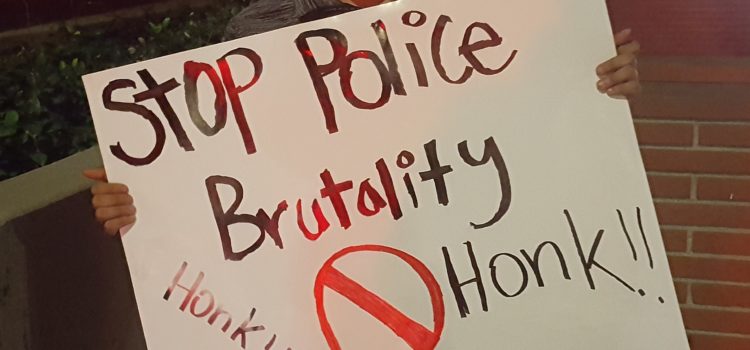
South Kern Sol, News Report, Dean Welliver
Almost two months after the American Civil Liberties Union of Southern California slammed Kern County law enforcement in a report alleging widespread civil rights abuses, it’s unclear what steps either of the two largest policing agencies have taken to address deficiencies highlighted in the agency’s report.
Bakersfield Police Department Sgt. Ryan Kroeker wouldn’t tell South Kern Sol this week whether the department has reviewed the ACLU’s 24 page report — which paints a scathing picture of Kern County law agencies run amok — or if it has sparked any internal review processes outside of an ongoing Department of Justice probe into alleged civil rights violations launched in 2016 by former Attorney General Kamala Harris.
Instead, Kroeker referred South Kern Sol to a two-month old press release reiterating that BPD Chief Lyle Martin would not address the report, and that the DOJ “has the sole authority to make comments regarding the investigation.”
Officials at the Kern County Sheriff’s Office wouldn’t respond to requests for comment.
The report, published Nov. 9 after two years of investigation, found the BPD and KCSO have established a “disturbing pattern” of officer-involved shootings, incidents with police canines, and beatings “beyond what was called for in numerous law enforcement situations,” according to an ACLU press release. The group found that in some cases, officers violated civil rights, used excessive force, and retaliated against those who claimed to be victims of excessive force.
Kern County Sheriff’s officials have shot and killed 10 people in officer-involved shootings since 2013, “far more than other Sheriff’s departments in counties with equivalent population sizes,” according to the report.
Meanwhile, the report named BPD “one of the deadliest” departments in the country. Its officers have killed 19 people since 2013, according to the report.
When compared to cities with comparable crime rates, BPD’s rate of deaths as a result of officer-involved shootings places it among the top five nationally and the second highest in California, according to the ACLU report.
And many times, when officers became involved in use-of-force situations, they filed charges of ‘resisting arrest,’ too, according to the report.
“According to BPD, its officers filed ‘“resisting’” charges in 27 percent% of its reported use of force incidents in 2015. In a sample of 2016 cases we reviewed, over half of ‘“resisting’” cases initiated by BPD involved a use of force by officers,” the report states.
The ACLU report — prompted by complaints from victims of police mistreatment in Kern County —corroborates allegations of excessive force made by community members, said Anthony Fuentes, an advocate with Faith In Kern, a nonprofit watchdog group that has for years worked alongside victims.
“People assume that they have a good idea of what’s going on just by hearing a few stories, myself included,” Fuentes said. “But then when you see it all in the report like that, I think it can be used as a really good educational tool because it really gets into the specifics.”
The ACLU placed the blame of the county law enforcement deficiencies on a lack of oversight and accountability that has allowed patterns and practices of officer misconduct to continue and escalate. It laid out recommendations for reform that include police training and oversight.
“I think we’d like to look at some of those things in the long term,” Fuentes said, adding, however, that the report neglected to focus on two of Faith in Kern’s key advocacy priorities: body cameras and an independent civilian oversight board.
The group has recently been developing plans for a civilian review board for BPD — something Chief Martin told The Bakersfield Californian this year he was interested in pursuing, but hesitant to install because he’s yet to find a model that would work in Bakersfield.
“Body cams is another thing that the report doesn’t talk about too much,” Fuentes said. “We would like to see that as long as there’s a really specific policy that goes with it so that body cams aren’t used to surveil the community, but are used to hold officers accountable.”
Fuentes said he would like to hear a response to the report soon from the Bakersfield Police Department and Kern County Sheriff’s Office to learn how they’re receiving it.
“I’d like to see how our police departments can move forward, improve and become better for the community after seeing this report,” Fuentes said.